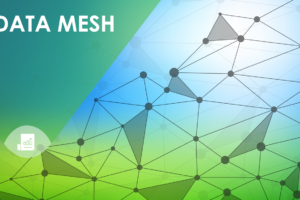In the modern age, characterized by a data explosion and constant technological evolution, organizations face the challenge of transforming large volumes of data into valuable insights for decision-making. This is where the combination of an agile mindset and modern Data & Analytics practices comes into play. Agile frameworks not only enhance operational efficiency but, combined with the agile mindset of key individuals, are crucial in building a data-driven culture.
Agile Mindset in Data Management
An agile mindset in the realm of data implies adopting an iterative, collaborative, and flexible approach to managing data projects Products. Agile frameworks, such as Scrum or Kanban, enable data teams to respond quickly to changes and prioritize tasks that generate the most value.
According to Gartner, implementing agile practices in data projects can increase productivity by up to 30%. Even better, they foster a culture of creating differential and highly usable data products, generating value and competitive advantage.

The Importance of Data Governance
A fundamental aspect of the data-driven culture is Data Governance. These practices ensure that data is accurate, consistent, secure and accessible.
Forrester highlights that a well-defined Data Governance strategy is essential to ensure that data is treated as a strategic asset and is adequately protected.
Data Fabric and Data Mesh: Key Innovations
Data Fabric stands out as an integral solution in data management, coherently uniting various data sources. It uses artificial intelligence and machine learning to provide transparent data integration and real-time access, thereby ensuring data quality, security, privacy, and governance. This approach provides efficient orchestration of data and processes, key to agile decision-making in data-driven environments.
In contrast, Data Mesh promotes a decentralized architecture, treating data as products and emphasizing team autonomy, with the same focus on quality, security, privacy, and data governance.
According to McKinsey, both Data Fabric and Data Mesh are fundamental to achieving agility and scalability, allowing organizations to extract valuable insights and facilitate informed decision-making.
DataOps and MLOps: Optimizing Data and Machine Learning Operations
DataOps and MLOps are methodologies that apply agile principles to the development and operation of data and machine learning projects. DataOps focuses on automation, monitoring, and continuous improvement of data flows. Meanwhile, MLOps applies these principles to the lifecycle of machine learning models. IDC reports indicate that adopting DataOps and MLOps can accelerate the time-to-market of data-based solutions by 50%.

Agile Frameworks: The Catalyst of the Data-Driven Revolution
Success in implementing a data-driven culture largely depends on the application of agile frameworks. These frameworks facilitate more effective collaboration, a customer-focused approach, and rapid value delivery.
Studies by Gartner and Forrester have shown that organizations adopting agile frameworks in their data projects not only improve operational efficiency but also achieve greater innovation and competitive advantage.
Conclusion
In conclusion, integrating an agile mindset with Data Governance, Data Fabric, Data Mesh, DataOps, and MLOps strategies is essential for organizations looking to thrive in today’s data-based economy.
Agile frameworks act as the catalyst that enables organizations to transform their data into a strategic asset, thereby driving the data-driven revolution.
The key is to adapt, innovate, and above all, maintain an agile mindset at every step of the way. 💡🚀
If you liked this article, PLEASE GIVE IT A LIKE, COMMENT, SHARE, and MENTION a friend who might find this information useful!! THANK YOU ❤️
Excellence in Data & Analytics is a journey, and it’s better when done in good company 👫





Leave a Reply
Your email is safe with us.